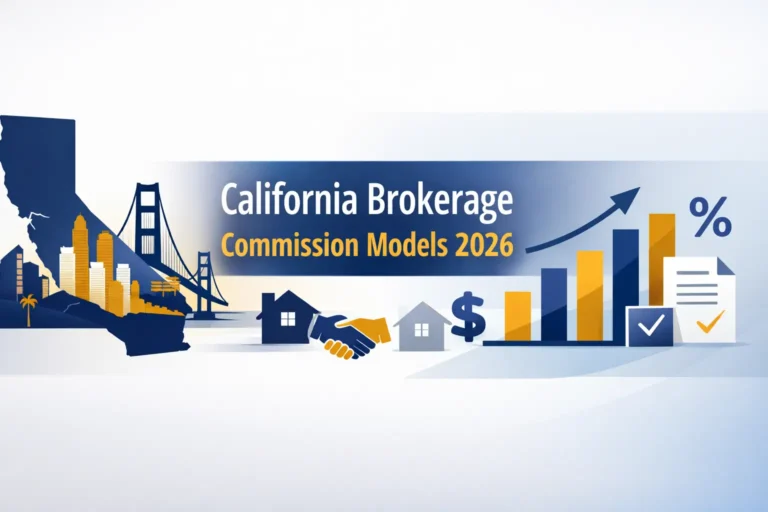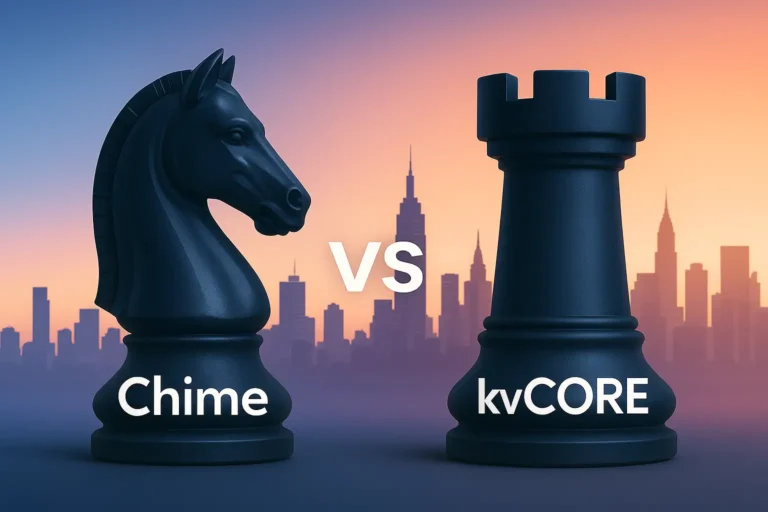The Ultimate Guide: Realtor vs Real Estate Agent – What Every Home Buyer and Seller Must Know
Here’s what happened to my neighbor Sarah last month: She contacted three different real estate professionals to sell her inherited property. Two called themselves “agents,” one was a “Realtor.” She nearly went with the cheapest option until I showed her what to look for. That conversation saved her $18,000 and weeks of stress.
This isn’t just about fancy titles or marketing terminology. The distinction between a Realtor and a real estate agent can significantly impact your experience, protection level, and ultimately, your financial outcome. After working in the real estate industry for over a decade and witnessing countless transactions, I’ve seen firsthand how choosing the right professional can mean the difference between a smooth, profitable experience and a nightmare that costs you thousands.
Let me share everything you need to know to make this crucial decision with confidence.
Understanding Real Estate Agents: The Foundation of Property Transactions
A real estate agent is your licensed guide through the complex world of property transactions. Think of them as your translator in a foreign land where contracts are written in legal jargon and negotiations can make or break deals worth hundreds of thousands of dollars.
To become a real estate agent, professionals must complete state-mandated education requirements that typically range from 40 to 162 hours, depending on your location. They then pass both state and national examinations before earning their license. However, here’s something many people don’t realize: real estate agents cannot work independently. They must operate under the supervision of a licensed broker.
What Real Estate Agents Bring to the Table
Real estate agents handle the nitty-gritty details that can overwhelm even the savviest consumers. They coordinate property showings, navigate contract negotiations, manage transaction timelines, and serve as your advocate throughout the entire process.
But here’s where it gets interesting. The quality and scope of services can vary dramatically between agents. Some may have limited access to the Multiple Listing Service (MLS), the comprehensive database that contains virtually every property for sale in your area. Others might lack the advanced training that comes with additional professional designations.
I’ve seen situations where well-meaning agents, despite their best intentions, couldn’t access certain listings or provide the level of market analysis their clients needed simply because they lacked the resources and training that come with higher-level certifications.
Realtors: The Gold Standard of Real Estate Professionalism
Now, let’s talk about Realtors (yes, it’s always capitalized and includes that registered trademark symbol). A Realtor is a real estate agent who has made a significant additional commitment to professionalism by joining the National Association of Realtors (NAR).
This isn’t just about paying membership dues. When someone becomes a Realtor, they’re agreeing to be held to a much higher standard than state licensing requirements demand. They must adhere to a comprehensive Code of Ethics that includes 17 Articles covering everything from client confidentiality to fair dealing with all parties involved in a transaction.
The Realtor Advantage: What Sets Them Apart
The most immediate practical difference you’ll notice is MLS access. While real estate agents may have limited or no MLS access depending on local requirements, Realtors are guaranteed full access through their NAR membership. This means they can show you every available property in your price range and provide comprehensive market analysis based on complete data.
But the benefits go much deeper. Realtors must complete mandatory Code of Ethics training every three years, participating in ongoing professional development that keeps them current with industry best practices and legal requirements. They also have access to NAR’s extensive research, legal resources, and advocacy efforts that individual agents simply cannot access.
Think about it this way: if you’re making one of the largest financial decisions of your life, wouldn’t you want someone who has committed to the highest possible professional standards?
The Real-World Impact: How These Differences Affect Your Transaction
Let me share what happened with two of my recent consultations that perfectly illustrate why these distinctions matter. Both clients owned similar $400,000 homes in the same ZIP code, listed within two weeks of each other.
Client A chose the 2% agent who promised “full service at half the price.” The result? Their home sat for 47 days, received lowball offers, and eventually sold for $387,000 after multiple price reductions.
Client B worked with an experienced Realtor charging 3% commission. Professional photos, strategic pricing, targeted marketing, and expert negotiation led to a sale at $408,000 in just 8 days.
The commission difference? About $4,000. The net outcome difference? Client B walked away with $17,000 more in their pocket.
Real Client Feedback
“I had no idea the difference was so significant until my Realtor showed me comparable sales data that my previous agent missed entirely. Worth every penny.” – Jennifer M., recent seller
“My agent seemed knowledgeable until we hit complications with the inspection. Switched to a Realtor mid-process and immediately saw the difference in resources and problem-solving ability.” – Marcus T., first-time buyer
Professional Accountability: Your Safety Net
When you work with a Realtor, you’re getting dual-layer protection. If something goes wrong, you can file complaints with both state licensing authorities and the National Association of Realtors. This dual accountability system means Realtors face potential consequences from multiple professional bodies, creating strong incentives for ethical behavior and quality service.
Real estate agents, while still regulated by state authorities, don’t have this additional layer of professional oversight. This doesn’t mean they provide inferior service, but it does mean you have fewer avenues for recourse if problems arise.
Financial Considerations: Understanding the Investment
Let’s address the elephant in the room: cost. Many people assume that Realtors charge more than real estate agents, but this isn’t necessarily true. Commission rates are negotiable regardless of professional designation, and market competition often keeps rates comparable.
However, here’s what many people don’t consider: the value equation. According to NAR data, homes sold with professional assistance typically sell for $58,000 more than For Sale By Owner properties. Additionally, professionally assisted sales close 37% faster than FSBO transactions.
When you factor in the potential for better pricing, faster sales, and superior market access, the investment in a qualified professional often pays for itself many times over.
Commission Structure Reality Check
Real estate commissions typically range from 3% to 6% of the sale price, split between buyer’s and seller’s agents. Both agents and Realtors must share their portion with their supervising broker, though experienced professionals often negotiate higher commission splits.
New agents might receive only 30% to 40% of the total commission after broker fees, while experienced agents and Realtors can negotiate up to 90% or even 100% of their portion (minus administrative fees).
Making the Right Choice: A Strategic Decision Framework
Choosing between a real estate agent and a Realtor isn’t always straightforward. Here’s my framework for making this decision based on your specific situation:
Choose a Real Estate Agent When:
Budget constraints are paramount: If minimizing costs is your primary concern and you’re comfortable with basic service levels, an experienced agent with strong local knowledge might be sufficient.
Simple, straightforward transactions: If you’re dealing with a typical residential sale or purchase without complications, an agent with solid local expertise can handle the job effectively.
Strong personal referrals: When trusted friends or family members recommend an agent based on excellent personal experiences, their track record might outweigh credential differences.
Choose a Realtor When:
Complex transactions: Multiple contingencies, commercial properties, unique circumstances, or challenging market conditions require the advanced resources and training that come with Realtor designation.
Maximum protection: If you want the highest level of professional accountability and ethical standards, the Realtor designation provides additional safeguards.
Volatile market conditions: During uncertain times, access to comprehensive market data, industry research, and professional networks becomes crucial.
Long-term relationship building: If you plan to buy or sell multiple properties over time, establishing a relationship with a Realtor provides access to ongoing market insights and professional development.
How to Verify Someone’s Realtor Status (Don’t Get Fooled)
Here’s something that might shock you: I’ve encountered professionals who claim to be “Realtors” when they’re actually just licensed agents. Here’s how to verify credentials in under 60 seconds:
Official Verification Steps:
- NAR Member Directory: Visit nar.realtor/directory and search by name and location
- State License Verification: Check your state’s licensing database for active status and any disciplinary actions
- Local Association Membership: Contact the local Realtor association directly
- Ask for NAR Member Number: Legitimate Realtors can provide their NAR membership number
Major State License Lookup Links:
- California: dre.ca.gov
- Texas: trec.texas.gov
- Florida: myfloridalicense.com
- New York: dos.ny.gov
- Illinois: idfpr.com
Pro Tip: If someone hesitates to provide verification information or gets defensive about the question, that’s a red flag worth noting.
The Technology Factor: How Modern Tools Change the Game
Today’s real estate landscape is increasingly digital, and the resources available to your chosen professional can significantly impact your experience. Realtors typically have access to advanced technology platforms, comprehensive market analysis tools, and digital marketing resources through their NAR membership.
This technology advantage translates into better market analysis, more effective property marketing, and streamlined transaction management. While some individual agents invest in high-quality tools independently, the institutional support that comes with Realtor membership often provides more comprehensive technological resources.
Looking Ahead: Industry Trends That Matter
The real estate industry continues evolving rapidly, with technology integration, changing consumer expectations, and enhanced professional standards reshaping how transactions occur. Professionals who stay current with these trends through continuing education and professional development are better positioned to serve their clients effectively.
Realtors benefit from NAR’s industry research, trend analysis, and professional development programs that help them adapt to changing market conditions. This forward-looking perspective can be particularly valuable during periods of market volatility or regulatory change.
Your Decision Checklist: Questions to Ask Any Professional
Before choosing your real estate professional, ask these critical questions:
What is your experience level in my specific market area, and can you provide recent comparable sales data? How do you plan to market my property (for sellers) or identify suitable properties (for buyers)? What is your average time on market for listings, and what is your list-price-to-sale-price ratio?
Can you provide references from recent clients in similar situations? What technology tools and marketing resources do you use? How do you communicate throughout the transaction, and what is your typical response time?
What professional designations do you hold, and how do you stay current with industry changes? How do you handle potential conflicts of interest or dual representation situations?
Comprehensive FAQ: Your Most Important Questions Answered
Q: Is the Realtor designation worth the potential extra cost? A: The Realtor designation often provides value that exceeds any additional cost through better market access, enhanced professional standards, and superior resources. The key is finding a professional whose expertise matches your transaction complexity and needs.
Q: Can I switch professionals mid-transaction if I’m unsatisfied? A: Yes, but this depends on your signed agreements. Most representation contracts include termination clauses, though you should understand any financial obligations before making changes. It’s better to choose carefully upfront than to switch mid-process.
Q: How do I verify someone’s credentials and track record? A: Check state licensing databases for current license status and any disciplinary actions. For Realtors, verify NAR membership through their online directory. Request and contact recent client references, and ask for documentation of recent sales or purchase transactions.
Q: What’s the biggest mistake people make when choosing their real estate professional? A: Focusing solely on commission rates rather than overall value proposition. The difference between a 2.5% and 3% commission becomes irrelevant if poor representation costs you tens of thousands in sale price or leads to transaction problems.
Q: Should first-time buyers prioritize working with a Realtor? A: First-time buyers often benefit from the enhanced education resources, comprehensive market access, and higher professional standards that come with Realtor designation. However, an experienced agent with strong local knowledge and excellent communication skills can also serve first-time buyers effectively.
Q: How important is local market expertise compared to professional designation? A: Both matter significantly. Deep local knowledge is crucial for pricing strategy, neighborhood insights, and market timing. Professional designation ensures access to resources and maintains ethical standards. The ideal professional combines both local expertise and professional credentials.
Q: What should I do if I suspect my real estate professional is not acting in my best interests? A: Document your concerns, communicate them clearly to your professional, and consider seeking a second opinion. For Realtors, you can file ethics complaints with NAR. For all licensed professionals, state real estate commissions handle regulatory violations.
Q: Are there situations where working with a broker directly is better than working with an agent or Realtor? A: Brokers often have more experience and can work independently, but they may also be more expensive or less available for day-to-day transaction management. The best choice depends on your specific needs and the individual professional’s expertise and availability.
Your Path Forward: Making an Informed Decision
Choosing between a Realtor and a real estate agent isn’t about finding the “right” answer that applies to everyone. It’s about understanding your specific needs, transaction complexity, and comfort level with different service standards.
Remember that the most important factors are competence, integrity, communication skills, and local market expertise. Whether someone holds the Realtor designation or not, they should demonstrate thorough knowledge of your market, provide clear communication, and show unwavering commitment to your interests.
Take time to interview multiple professionals, check references, and trust your instincts about who you feel most comfortable working with during what may be one of your life’s most significant financial transactions.
The real estate market will always have its challenges and opportunities. Your choice of professional representation can mean the difference between navigating these successfully or struggling through avoidable problems. Choose wisely, ask tough questions, and remember that the cheapest option rarely provides the best value when hundreds of thousands of dollars are at stake.
Ready to Make Your Next Real Estate Move?
Feeling overwhelmed by your options? You don’t have to navigate this decision alone.
Whether you’re buying your first home, selling an inherited property, or investing in real estate, the right professional makes all the difference. Based on your specific situation, timeline, and local market conditions, I can help you determine whether you need an experienced agent or a certified Realtor.
🎯 Get a Free 15-Minute Strategy Session
- Discover which type of professional fits your situation
- Get current market insights for your area
- Learn the questions to ask before hiring anyone
- Receive a personalized action plan for your goals
Schedule Your Free Call Now or Send Us a Quick Message
No sales pressure. Just honest advice to help you make the best decision for your situation.







3 Comments